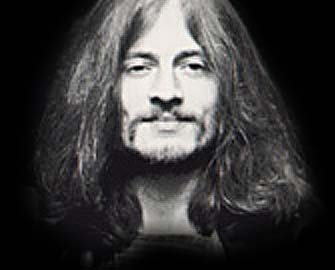|
|
Guitar/Bass Tab • Drum Transcriptions • Tour Dates • Set Lists • Sounds • Pictures • Fonts
Web Sites • Bibliography • About This Site • FAQ • Home
|
|||
|
John Bonham •
Jimmy Page •
John Paul Jones •
Robert Plant •
Discography •
Lyrics •
First Line Index Guitar/Bass Tab • Drum Transcriptions • Tour Dates • Set Lists • Sounds • Pictures • Fonts Web Sites • Bibliography • About This Site • FAQ • Home |
|||
 |
||
 |
"Organ was originally my favourite love," he said, adding wryly, "but for session playing, I found it much easier to carry a bass guitar to work than a Hammond organ. So there I was living with all I had--a guitar, a Hammond organ, and a table and bed in my room in London. "As a bass player, I wasn't influenced by a lot of people because it was only in the mid- to late-1960s that you could even hear the bass properly on records. I had a number of obvious jazz influences--most of the good jazz bass player influenced me in one way or another...Charlie Mingus, Ray Brown, Scott LeFaro. I even got into jazz organ for a while until I couldn't stand the musicians any more and I had to get back to rock and roll." "I've got to own up. The first record that really turned me on to rock bass guitar was "You Can't Sit Down" by Phil Upchurch which has an incredible bass solo and was a really good record as well. It was very simple musically but the record had an incredible amount of balls." "The only real impetus I had for arranging was panic. I put me hand up. You know how it is--somebody asks does anybody do any arrangements and you say, 'Yeah, sure.' Then as the session gets closer, you get a book and try and work out what goes where. After a couple of these situations, you find you're an arranger. It happens that way for a lot of people." Source: Yorke, Ritchie. Led Zeppelin: The Definitive Biography. Novato, California: Underwood-Miller, 1993. John Paul Jones media on this site: sound clips John Paul Jones web sites: Presence Baja |
|
|
"My parents were both in the business. They were in variety--with a double act, a musical comedy thing. I've been on the road since I was two years old!" "He [Jones' father] said I should play saxophone because I'd never starve," Jones laughed with the wisdom of hindsight. "But I didn't want to play sax--I wanted to play bass. When he found out I could play the bass, he said, 'All right, good bass players are hard to come by.' And off we went doing weddings and masonics and the usual run of things." |
||